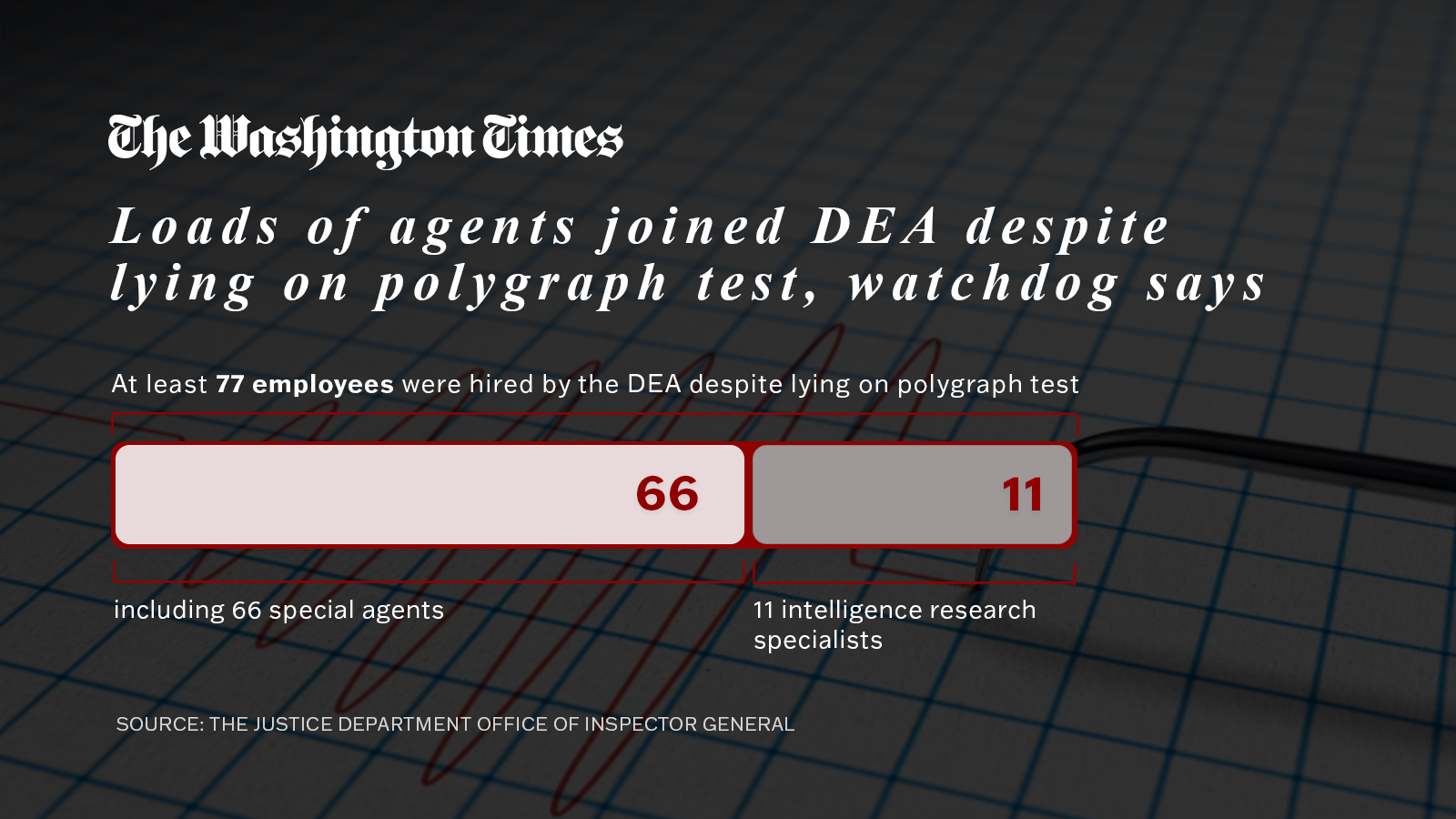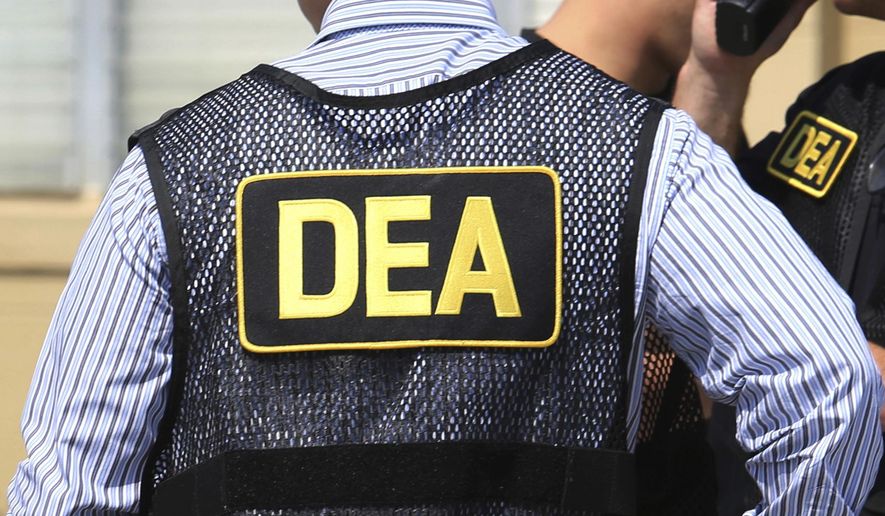A version of this story appeared in the On Background newsletter from The Washington Times. Click here to receive On Background delivered directly to your inbox each Friday.
The Drug Enforcement Administration hired dozens of agents and analysts suspected of lying during their pre-employment polygraph test, the Justice Department’s watchdog said in a report released Wednesday.
The Justice Department Office of Inspector General found at least 77 employees, including 66 special agents and 11 intelligence research specialists, were hired by the agency despite receiving a “significant response” on their lie detector test.

A “significant response” means the applicant indicated deception while answering the same question several times. Applicants are asked a range of questions related to past drug use, serious criminal activity, truthfulness on pre-employment documentation, and national security issues. The polygraph results are used to evaluate a candidate’s character and potential national security risk.
Under DEA policy, an applicant who shows a “significant response” is automatically disqualified from the job and any other position within the agency for three years.
“The DEA unnecessarily assumes the risk that inevitably comes with law enforcement officers potentially unsuitable for this important role, which could include the potential for intentional and unintentional compromise of sensitive DEA operations and jeopardize the public’s trust,” the Inspector General report said.
Concerns over DEA agent suitability come at a difficult time for the agency, which is trying to combat the record level of drugs, including meth and fentanyl, flooding the country, largely through the southern border. This year the DEA has seized 46.4 million fentanyl-laced pills and is on pace to break last year’s record of 58.3 million such pills.
The spike in drugs has prompted the DEA to hire thousands of special agents for positions across the world. Now, the polygraph results raise serious questions.
In March 2018, a candidate’s polygraph exam indicated deception to questions about providing classified information to unauthorized individuals and being involved in terrorist activities.
The deception caused the polygraph examiner to stop the test before asking suitability questions. However, the DEA mistakenly marked the exam as complete. The candidate was hired and is employed as a special agent.
In November 2020, a polygraph test indicated that a special agent candidate showed deception in response to questions about mishandling and compromising classified information, according to the report. Again, the examiner stopped the polygraph before asking suitability questions. The applicant was hired and is now a DEA special agent.
A December 2017 polygraph test revealed a candidate lied on his application about not committing a serious crime. The application admitted during the test to “engaging in inappropriate behavior while a juvenile with a younger juvenile.” The examiners stopped the test before asking national security questions. Yet the DEA’s hiring panel was told the applicant passed the test with “no significant response” and the individual works as a DEA special agent.
Some of the agents assigned to DEA task forces were allowed to remain with their units, even after the Inspector General brought the polygraph issues to officials’ attention.
“We continue to have concerns with the DEA’s efforts to efficiently and effectively ensure applications have completed a full-scope polygraph as required by DEA policy,” the report said.
In a response accompanying the Inspector General report, the DEA disputed that its polygraph records were inaccurate or incomplete. The agency said it can “quickly query an applicant’s name and read the full details of their polygraph examination.”
However, Michael Ciminelli, the DEA’s acting chief compliance officer, acknowledged in his response that the agency must do more to ensure it’s no longer hiring applicants who have not fully or successfully completed the polygraph test. He said the agency has adopted new procedures to prevent inappropriate influence or mistakes influencing the polygraph exams.
• Jeff Mordock can be reached at jmordock@washingtontimes.com.




Please read our comment policy before commenting.